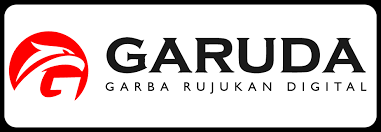Self-Efficacy Mahasiswa PGSD Pada Perkuliahan Daring Di Era New Normal
(1) Universitas Negeri Makassar
(2) Universitas Negeri Makassar
(3) Universitas Negeri Makassar
(*) Corresponding Author
DOI: https://doi.org/10.26858/jkp.v6i2.33247
Abstract
Disruptive innovation is a challenge for universities in preparing graduates who have superior human resources. PGSD students need to understand themselves and know the pattern of self-mastery or self-efficacy in order to optimize the development of their potential in achieving lecture targets. Achieving the target of online lectures in the new normal era requires the role of students as learners. The importance of this study aims to reveal the dimensions of self-efficacy of PGSD students who play a role in online lectures in the new normal era. This research was carried out with a qualitative descriptive method. The results reveal the dimensions of self-efficacy of PGSD students, consisting of: efficacy to influence decision making, instructional self-efficacy, disciplinary self-efficacy, efficacy to enlist lecturer involvement, efficacy to enlist community involvement and efficacy to create a positive learning. It can be concluded that there are 6 dimensions of self-efficacy of PGSD students with very good and good categories that play a role in the achievement of online lectures in the new normal era.
Keywords
Full Text:
PDFReferences
Allo, E. L., Permanasari, A., Wiji, & Redjeki, S. (2021). Strengthening Pedagogical Content Knowledge Of Prospective Chemistry Teacher : Metacognitive Based Preparation Program For Students’ Self-Efficacy. 6(1), 93–108. https://doi.org/10.30870/educhemia.v6i1.9113.
Anitasari, A., Pandansari, O., Susanti, R., Kurniawati, K., & Aziz, A. (2021). Pengaruh efikasi diri terhadap perilaku menyontek siswa sekolah dasar selama pembelajaran daring. Jurnal Penelitian Ilmu Pendidikan, 14(1), 82-90.
Arikunto. (2010). Prosedur Penelitian: Suatu Pendekatan Praktek. Jakarta: Rineka Cipta.
Bayır, B., & Aylaz, R. (2021). The effect of mindfulness-based education given to individuals with substance-use disorder according to self-efficacy theory on self-efficacy perception. Applied Nursing Research, 57(July), 151354. https://doi.org/10.1016/j. apnr.2020.151354.
Chauca, M., Phun, Y., Curro, O., Chauca, C., Yallico, R., & Quispe, V. (2021). Disruptive innovation in active activity-based learning methodologiesthroughd igital transformation. International Journal of Information and Education Technology, 11(4), 200-204.
Fajar, P., & Aviani, Y. I. (2022). Hubungan Self-Efficacy dengan Penyesuaian Diri: Sebuah Studi Literatur. Jurnal Pendidikan Tambusai, 6(1), 2186-2194.
Hibatullah, R. I., Nurhalizah, D., & Akhmad, S. N. (2022). Urgensi Self-Efficacy Mahasiswa pada Pembelajaran Jarak Jauh. Biblio Couns: Jurnal Kajian Konseling dan Pendidikan, 5(1), 1-13.
Indirwan, I., Suarni, W., & Priyatmo, D. (2021). Pentingnya self-efficacy terhadap prestasi belajar matematika. Jurnal Sublimapsi, 2(1), 61
Khusnul, N. R. I., & Suharyadi, A. (2021). Strategi Dosen Dalam Manajemen E-Learning Guna Meningkatkan Hasil Belajar Mahasiswa di Perguruan Tinggi. Kelola: Jurnal Manajemen Pendidikan, 8(1), 34 https://doi.org/10.24246/j.jk.2021.v8.i1.p34-48.
Mitchell, K. M., McMillan, D. E., Lobchuk, M. M., Nickel, N. C., Rabbani, R., & Li, J. (2021). Development and validation of the Situated Academic Writing Self-Efficacy Scale (SAWSES). Assessing Writing, 48(August 2020), 100524. https://doi.org/10.1016/j.asw.2021.100524.
Puspitasari, D. A., & Handayani, M. M. (2014). Hubungan tingkat self-efficacy guru dengan tingkat burnout pada guru sekolah inklusif di Surabaya. Jurnal Psikologi Pendidikan dan Perkembangan, 3(1), 59-68.
Rohmah, D. W. M., & Rizqan, M. D. A. (2021). Kesiapan Mahasiswa dalam Pembelajaran Daring dan Hubungannya dengan Hasil Belajar. Jurnal Penelitian Humaniora, 22(2), 136-147.
Sahrani, R. (2021). Peran Self-Efficacy Terhadap Self-Regulated Learning Pada Mahasiswa Yang Bekerja Di Masa Pandemi Covid-19. Jurnal Muara Ilmu Sosial, Humaniora, dan Seni, 5(2), 502-509.
Sekerdej, M., & Szwed, P. (2021). Perceived self-efficacy facilitates critical reflection on one’s own group. Personality and Individual Differences, 168 (July 2020). https://doi.org/10.1016/j.paid.2020.110302.
Sugiyono. (2008). Metode Penelitian Kualitatif Kuantitatif dan R&D. Bandung: Alfa Beta.
Article Metrics
Abstract view : 151 times | PDF view : 35 timesRefbacks
- There are currently no refbacks.
Copyright (c) 2022 Hamzah Pagarra, Muhammad Irfan, Siti Raihan

This work is licensed under a Creative Commons Attribution-NonCommercial 4.0 International License.
Dipublikasikan oleh
Program Studi Pendidikan Sekolah Dasar Kampus VI UNM Bone
Universitas Negeri Makassar
Jalan Sudirman Watampone.
Hubungi 085299249197
Email: neysaamran@yahoo.co.id
JIKAP Terindex:

JIKAP dilisensikan di bawah Lisensi Internasional Creative Commons Attribution-NonCommercial 4.0 .
Dedicated to:












